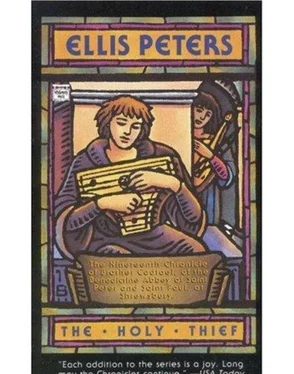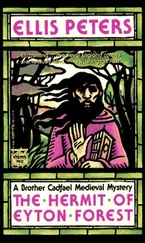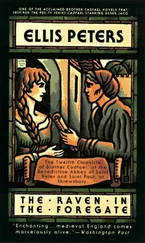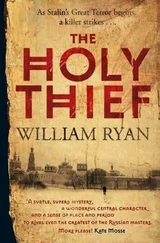Ellis Peters
The Holy Thief
IN THE HEIGHT OF A HOT SUMMER, in late August of 1144, Geoffrey de Mandeville, Earl of Essex, deferred to the heat of the sun, and made the final, fatal mistake of his long and opportunist career. He was engaged, at the time, in planning the destruction by siege of one of the circle of improvized but effective fortresses King Stephen had thrown up to contain and compress the depredations of Geoffrey’s host of outlaws, rebels and predators in the Fen country. For more than a year, from his elusive bases in the Fens, Geoffrey had so devastated the countryside as to ensure that not a field should be safely planted or reaped, not a manor properly tended, not a man with anything of value to lose should be left in possession of it, and not one who refused to surrender it should be left with even a life to lose. As the king had wrested from him all his own relatively legitimate castles and lands and titles, none too legally if the truth be told, so Geoffrey had set to work in defiance to do as much to every man, poor or rich, who got in his way. For a year, from the borders of Huntingdon to Mildenhall in Suffolk and over much of Cambridgeshire, the Fens had become an enclosed robber kingdom in spite of King Stephen’s head, and though his hasty ring of castles had done something to prevent its further enlargement, it had not hampered the earl’s movements greatly, or brought him to the battle he was expert at avoiding.
But this strong-point of Burwell, north-east of Cambridge, irritated him because it was beginning to interfere with his supply lines, almost the only thing vulnerable about him. And on one of the hottest days of August he was riding round the offending castle to view the best possibilities for attack. Because of the heat he had discarded his helmet and the curtain of fine chain mail that guarded his neck. An ordinary bowman on the wall loosed a shot at him, and struck him in the head.
Geoffrey laughed at it, the wound seemed so slight; he withdrew to allow a few days for healing. And in a few days he was burning with a fevered infection that pared the flesh from his bones and brought him to his bed. They carried him as far as Mildenhall in Suffolk, and there awoke to the knowledge that he was dying. The sun had done what all King Stephen’s armies could not do.
What was impossible was that he should die in peace. He was an unabsolved excommunicate; not even a priest could help him, for in the mid-Lent council called the previous year by Henry of Blois, bishop of Winchester, the king’s brother and at that time papal legate, it had been decreed that no man who did violence to a cleric could be absolved by anyone but the Pope himself, and that not by any distant decree, but in the Pope’s veritable presence. A long way from Mildenhall to Rome for a dying man in terror of hellfire. For Geoffrey’s excommunication had been earned by his seizure by violence of the abbey of Ramsey, and his expulsion of the monks and their abbot, to turn the convent into the capital of his kingdom of thieves, torturers and murderers. For him there was no possible absolution, no hope of burial. The earth would not have him.
There were those who did their best for him, frantic in defence of his soul, if they could not help his body. When he grew so weak that he ceased to rave and sank into stupor, his officials and men of law began feverishly issuing charters in his name, restoring to the Church various properties he had seized from her, including the abbey of Ramsey. Whether with his goodwill or not, no one stopped to ask, and no one ever knew. The orders were carried out, and respected, but they did not avail him. His body was refused Christian burial, his earldom was abolished, his lands and offices remained forfeit, and his family disinherited. His eldest son was excommunicate with him, and partner in his rebellion. A younger, and his namesake, was already with the Empress Maud, and recognized by her as earl of Essex, for what such an acknowledgement was worth without lands or status.
On the sixteenth day of September Geoffrey de Mandeville died, still excommunicate, still unabsolved. The only remaining mercy was shown to him by certain Knights Templar who were in Mildenhall at the time, and took his coffined body back with them to London, where for want of any Christian relenting they were forced to let him lie in a pit outside the churchyard of the Temple, in unhallowed ground, and even so a step beyond what was permitted by canon law, for by the strict letter he should not have been laid in the earth at all.
In the ranks of his motley army there was no one strong enough to take his place. The only thing that held them together was mutual self-interest and greed, and without him their dubious alliance began to fall apart, as the encouraged forces of the king moved in upon them with renewed resolution. Parties of outlaws withdrew discreetly in all directions to look for less frequented pastures and more impenetrable solitudes, where they could hope to continue their lives as beasts of prey. The more reputable, or those of more regarded birth and with more to proffer, went roundabout to make their peace and retire into safer alliances.
To everyone else the news of Geoffrey’s death gave universal satisfaction. It reached the king quickly, relieved him of the most dangerous and implacable of his enemies, and instantly eased him of the necessity of immobilizing the greater part of his forces in one region. It was carried from village to village through the Fen country as the raggle-taggle marauders withdrew, and people who had lived in terror emerged cautiously to retrieve what they could of a plundered harvest, rebuild their burned homes and reassemble their families and kinships. Also, for death had been more than usually busy in those parts, to bury their dead decently. It would take more than a year for life to get back into any kind of normality, but at least now it could take the first wary steps.
And before the year’s end it reached Abbot Walter of Ramsey, with the deathbed charter that gave his monastery back to him, and he gave due thanks to God, and set about sending the word on to his prior and sub-prior and all his scattered brothers, who had been forced out penniless and homeless to find shelter where they could, some with their kin, some in other hospitable Benedictine houses. The first and nearest hurried to answer the summons home, and entered a total desolation. The monastic buildings were a mere shell, the lands untilled, the manors the house had formerly possessed handed out to thieves and vagabonds, all its treasures stripped away. The walls, they said, bled for very grief. Nevertheless, Abbot Walter and his brothers set to work to restore their house and their church, and sent out the news of their return to all those monks and novices who had had to go long distances to find a shelter during their exile. Being members of a wider brotherhood, having all the Benedictine Order as kin, they also sent out an urgent appeal for help in alms, material and labour to speed the work of rebuilding and refurnishing the sacred place.
In due time the news, the invitation and the need arrived at the gatehouse of the abbey of Saint Peter and Saint Paul, at Shrewsbury.
THE MESSENGERS ARRIVED during the halfhour of chapter, and would not eat, drink or rest, or wash the mud of the roads from their feet, until they had made their way in to the assembly in the chapterhouse, and delivered their charge. If the suppliants failed in zeal, so would the givers.
They stood with every eye upon them, refusing to sit until the message was proclaimed. Sub-Prior Herluin, long in experience and authority, a man of impressive presence, stood fronting the lord abbot, his lean hands folded at his girdle. The young novice who had walked with him all the way from Ramsey stood modestly a pace or two behind, devoutly copying his superior’s pose and stillness. Three lay servants of their house, escort on the journey, they had left with the porter at the gatehouse.
Читать дальше












